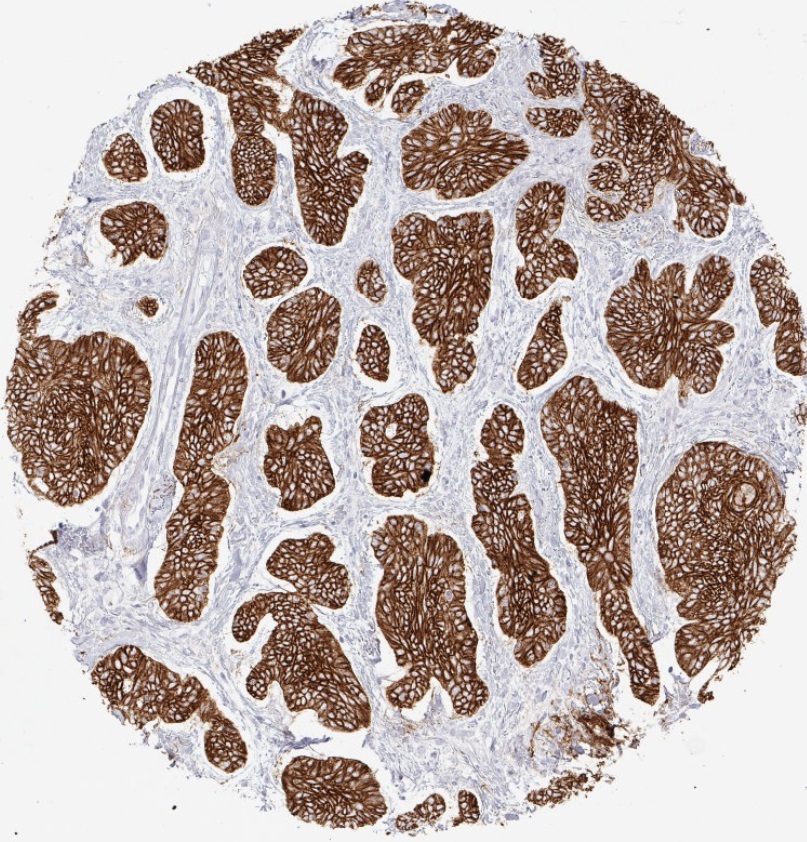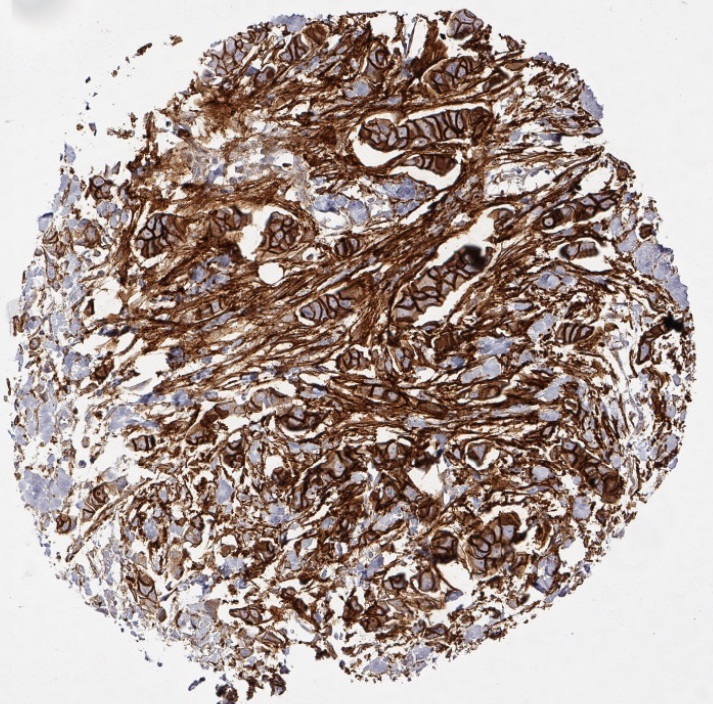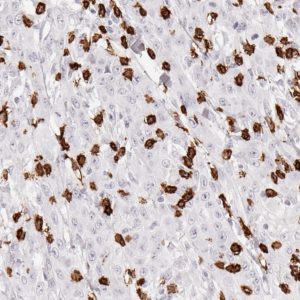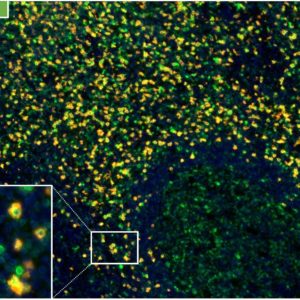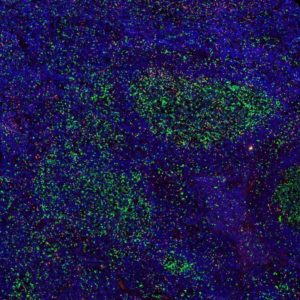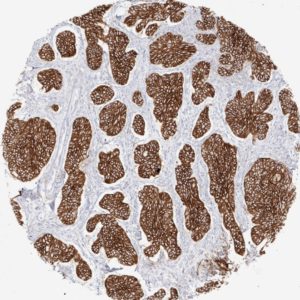Reactivity
Mouse monoclonal anti-CD138 antibody clone JASY1 is suitable for the immunohistological detection of CD138 in routine-fixed paraffin embedded tissue sections.
Cluster of differentiation 138 (CD138), also known as Syndecan-1, is a transmembrane glycoprotein, (heparin sulphate pro-teoglycan) expressed on the surface of plasma cells within the hematopoietic system and on the surface of mature epithelial cells. CD138 is composed of a single chain transmembrane core protein (30,5 KDa, comprising a short cytoplasmic domain, a transmembrane domain, and a long extracellular domain) and five covalently attached glycosaminoglycan.
In diagnostic surgical pathology, antibodies against CD138 are commonly used to identify and quantitate plasma cells. Syndecan-1 (CD138) is a cell surface protein with relevance for cell-cell and cell-matrix interaction. In normal tissues, CD138 is expressed on plasma cells but also in various epithelial cell types. CD138 is also expressed in various cancers. In several tumor types CD138 expression levels were described to be prognostically relevant. CD138 expression in cancer is of poten-tial clinical interest. Antibody-based drugs targeting CD138 in plasmocytomas are being evaluated in clinical trials. In preclini-cal studies, anti-CD138 antibodies were also effective against triple negative breast cancer and melanoma cells.
References
Specific References for clone JASY1
-
- Kind, S. et al. (2019) Prevalence of Syndecan-1 (CD138) Expression in different kinds of human tumors and normal tis-sues. Disease Markers, Volume 2019, Article ID 4928315
- Kind, S. et al. (2019) A shift from membranous and stromal syndecan-1 (CD138) expression to cytoplasmic CD138 ex-pression is associated with poor prognosis in breast cancer. Mol. Carcinogenesis, 58(12):2306-2315.
General References
-
- Carbone A, et al. (1998) Differential expression of BCL-6, CD138/syndecan-1, and Epstein-Barr virus-encoded latent membrane protein-1 identifies distinct histogenetic subsets of acquired immunodeficiency syndrome-related non-Hodgkin’s lymphomas. Blood 91: 747-755
- Anttonen A et al. (1999) Syndecan-1 expression has prognostic significance in head and neck carcinoma. Br J Can-cer. 79(3-4): 558-564
- Chilosi M et al. (1999) CD138/syndecan-1: a useful immunohistochemical marker of normal and neoplastic plasma cells on routine trephine bone marrow biopsies. Mod Pathol. 12: 1101-1106
- Sebestyén A et al. (1999) Syndecan-1 (CD138) expression in human non-Hodgkin lymphomas. Br J Haematol. 104: 412-419
- Bayer-Garner IB et al. (2001) Syndecan-1 (CD138) immunoreactivity in bone marrow biopsies of multiple myeloma: shed syndecan-1 accumulates in fibrotic regions. Mod Pathol. 14: 1052-1058
- O’Connell FP et al. (2004) CD138 (syndecan-1), a plasma cell marker immunohistochemical profile in hematopoietic and nonhematopoietic neoplasms. Am J Clin Pathol. 121: 254-63.
- Sanderson RD et al. (2008) Syndecan-1: a dynamic regulator of the myeloma microenvironment. Clin Exp Metasta-sis. 25: 149-159
- Colomo L et al. (2004) Diffuse large B-cell lymphomas with plasmablastic differentiation represent a heterogeneous group of disease entities. Am J Surg Pathol. 28: 736-747

